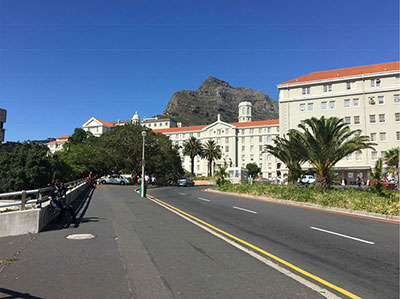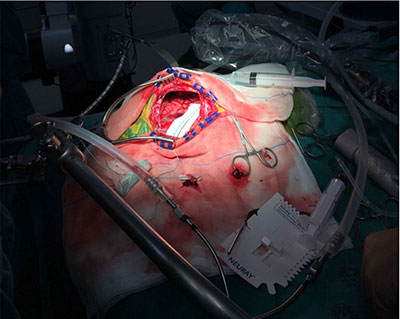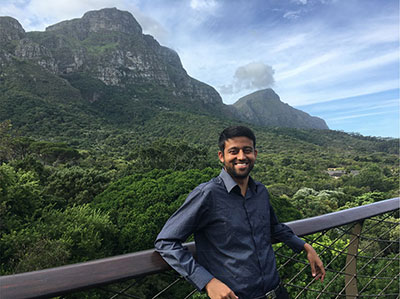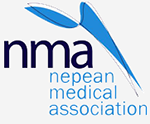2016
With generous assistance of a scholarship awarded through the NMA, in early 2016 I spent my Elective term in the Department of Neurosurgery at Groote Schuur Hospital in Cape Town, South Africa. As a public tertiary referral centre serving the greater metropolitan area, Groote Schuur Hospital sees the full spectrum of the very diverse Cape Town population, many of whom are relatively underprivileged.

Groote Schuur Hospital
As a junior member on the Neurosurgery Team, I attended ward rounds, neuroradiology meetings and most excitingly the operating theatre. My most fruitful experiences came when I joined the on-call registrar for after-hours shifts. Here I learned how to acutely assess trauma patients from a neurosurgical perspective, including evaluation of GCS and interpretation of brain imaging, and accordingly to make decisions regarding management, both conservative and invasive. When neurosurgical intervention was warranted I had the fantastic opportunity to perform the role of first assistant, scrubbing in on procedures such as evacuation of acute subdural haematoma via decompressive craniotomy.

Paediatric Neurosurgery
In Cape Town I saw a number of conditions that are relatively rare in Australia. The sheer burden of CNS neuro-trauma, largely caused by assault and road accidents, was quite overwhelming. Furthermore given the relatively high prevalence of communicable diseases in a developing setting such as South Africa, I had the opportunity to learn first-hand about the CNS manifestations of infections including TB and HIV.
Spending time in South Africa’s relatively resource-limited public healthcare system has opened my eyes to the importance of clinical diagnostic reasoning in face of scarcity. As I approach the end of medical school here in Australia I will strive to continuously improve my clinical skills, such that I shall only avail of costly investigations when necessary. Another contrast I observed was the relatively coarse bedside manner and generally low consideration for patient comfort, privacy and confidentiality in South Africa; this is likely a consequence of the heavy patient burden placed on the limited public healthcare resources. These are elements of the more patient-centred clinical approach in Australia that I value even more now, and will endeavour to uphold strongly in future.
I am very grateful for the NMA’s support in enabling me to gain this rich overseas Elective term experience in a developing country so far away from home.

At Table Mountain





